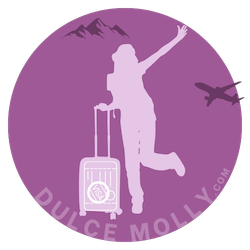“Visiting Paris for the first time” is an unforgettable adventure that sparks the imagination and stirs the soul. As you prepare to explore the enchanting streets of Paris, this guide is here to illuminate every step of your journey. From the aroma of fresh croissants each morning to the awe-inspiring sight of the Eiffel Tower, Paris invites first-time visitors to dive into its rich tapestry of art, gastronomy, and culture. Whether you’re eager to explore high fashion avenues, indulge in exquisite culinary delights, or immerse yourself in unparalleled historical treasures, Paris is ready to fulfill those dreams. This guide, rich with tips for “visiting Paris for the first time,” will equip you with everything you need to navigate the city with ease, embrace local customs, and uncover the iconic and hidden jewels that make Paris a beloved destination worldwide.
Visa and Legal Requirements
- Do I need a visa to visit Paris as an American citizen?
- What are the visa requirements for staying longer than 90 days?
Emergency and Healthcare
- What are the emergency contact numbers in Paris?
- How do I access healthcare services in case of an emergency?
- How does the healthcare system work for tourists in need of medical attention?
Transportation and Navigation
- What’s the best way to get from Charles de Gaulle Airport to central Paris?
- How do I use public transport in Paris?
- What’s the etiquette for using the Paris Metro?
Safety and Security
- Are there any cultural norms I should be aware of to avoid offending locals?
- What are the safest districts for solo female travelers to stay in?
- Are there any specific scams targeting tourists that I should be aware of?
For more Safety Tips check this Is Paris Safe for Solo Female Travelers? Comprehensive Safety Tips 2024
Food and Dining
- How do I navigate health and dietary restrictions when dining in Paris?
- What are the best solo dining options in Paris?
- Are there any female-friendly cafes or bars you’d recommend?
Cultural Insights and Etiquette
- What are some basic French phrases I should know?
- What’s the tipping etiquette in Paris?
- How can I respect local traditions and etiquette while visiting religious sites?
Exploring Paris
- What are the must-visit attractions in Paris?
- What are some hidden gems in Paris I shouldn’t miss?
- Are there any areas in Paris I should avoid for safety reasons?
Financial Tips
- What’s the best way to carry money? Should I use cash, cards, or a mix of both?
- What are the best practices for using credit cards and ATMs in Paris?
- Are there any specific health vaccinations I need before traveling to France?
Technology and Connectivity
- How do I connect to Wi-Fi in public areas?
- Are there any Paris-specific apps I should download?
- How can I ensure I have a mobile internet connection while traveling around Paris?
Accommodations and Recommendations
- What are the best neighborhoods for shopping?
- Can you recommend any spa or wellness centers in Paris?
- How do I find a reputable and safe accommodation option?
Miscellaneous
- Can I drink the tap water in Paris?
- What kind of weather can I expect during [insert month/season]?
- What kind of electrical adapter do I need for France?
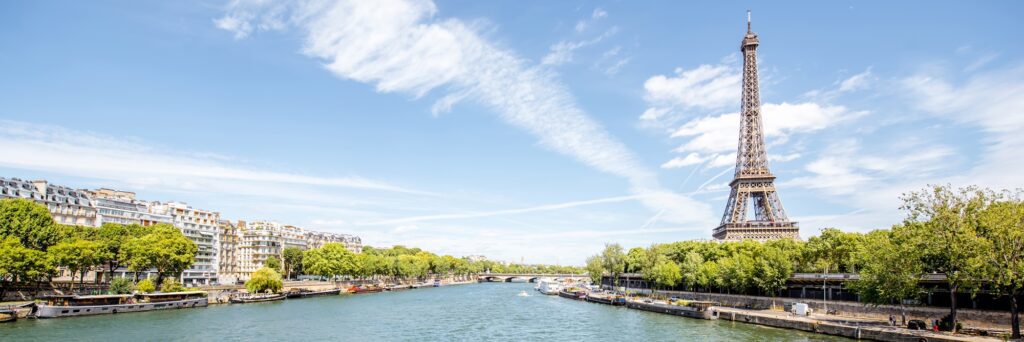
Visa and Legal Requirements
Navigating Visa and Legalities: Understanding the visa requirements is crucial for anyone “visiting Paris for the first time.” This section demystifies the process for North or South American citizens, from short-stay visits to longer adventures, ensuring you’re well-prepared before you even pack your bags.
Do I need a visa to visit Paris as an American citizen?
As a North American or South American citizen, you don’t need a visa for short visits to Paris, France, for up to 90 days within a 180-day period for tourism, business, or family visits. However, ensure your passport is valid for at least three months beyond your planned date of departure from the Schengen area. Always check the latest requirements before your trip, as visa policies may change.
What are the visa requirements for staying longer than 90 days?
For stays longer than 90 days, American citizens must apply for a long-stay visa appropriate to their visit’s purpose (e.g., work, study, family reunification) before arrival. This process involves gathering documents and applying through the French consulate or embassy in your home country. Check France-Visas, the official visa website for France, for the most current information and application procedures.
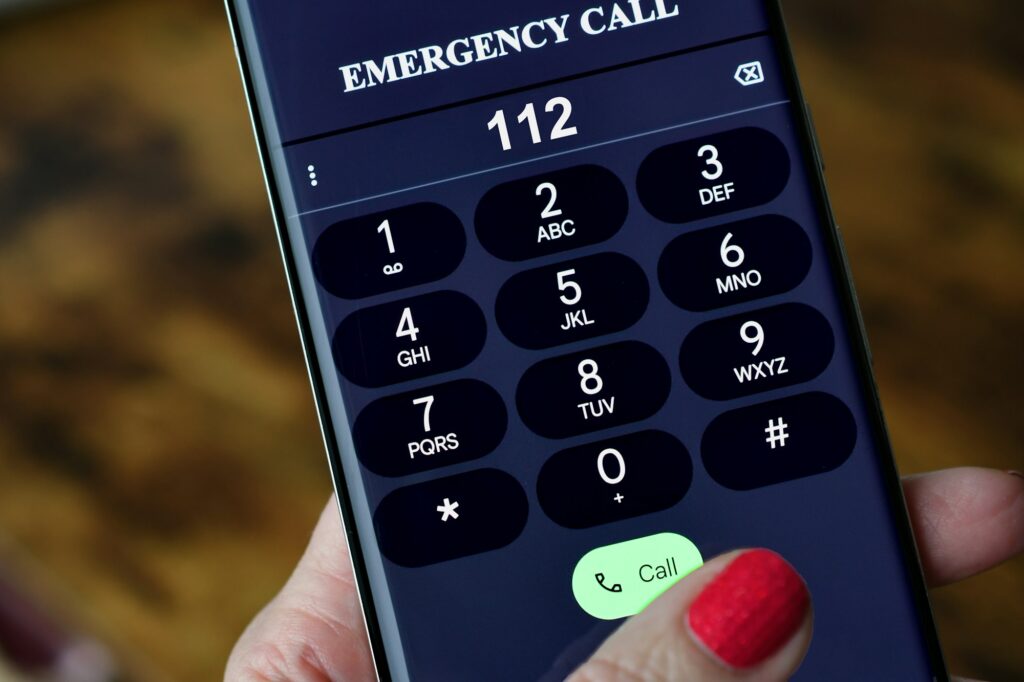
Emergency and Healthcare
Preparing for the Unexpected: For those “visiting Paris for the first time,” knowing how to access healthcare services and what emergency numbers to dial can be a lifesaver. This segment provides a comprehensive guide to staying safe and healthy, so you can focus on the beauty of Paris without worries.
What are the emergency contact numbers in Paris?
In Paris, and throughout France, you can dial 112 for emergency services, which will connect you to medical, fire, and police assistance. This number can be dialed from any phone, including mobile phones, even without a SIM card. Additionally, for direct medical emergencies, 15 is the number for SAMU (medical emergency service), 17 for police, and 18 for firefighters, who also provide medical assistance. It’s a good idea to save these numbers in your phone before your trip.
How do I access healthcare services in case of an emergency?
In an emergency, you can go directly to the emergency department (urgences) of the nearest hospital or dial 112 or 15 to get immediate assistance. Pharmacies can also offer advice for minor ailments and can direct you to the nearest medical facility if more care is needed. Pharmacies are widespread, and you can identify them by a green cross sign. For less urgent health concerns, consider visiting a general practitioner; appointments can often be booked online via platforms like Doctolib.
How does the healthcare system work for tourists in need of medical attention?
Tourists can access healthcare services in Paris by visiting hospitals, clinics, or general practitioners. While emergency services will not deny care, non-EU tourists should expect to pay for services rendered at the time of visit and seek reimbursement from their travel or health insurance later. It’s crucial to have a comprehensive travel health insurance policy that covers medical expenses abroad, including possible repatriation. Always keep receipts and detailed medical reports to facilitate claims with your insurance company.
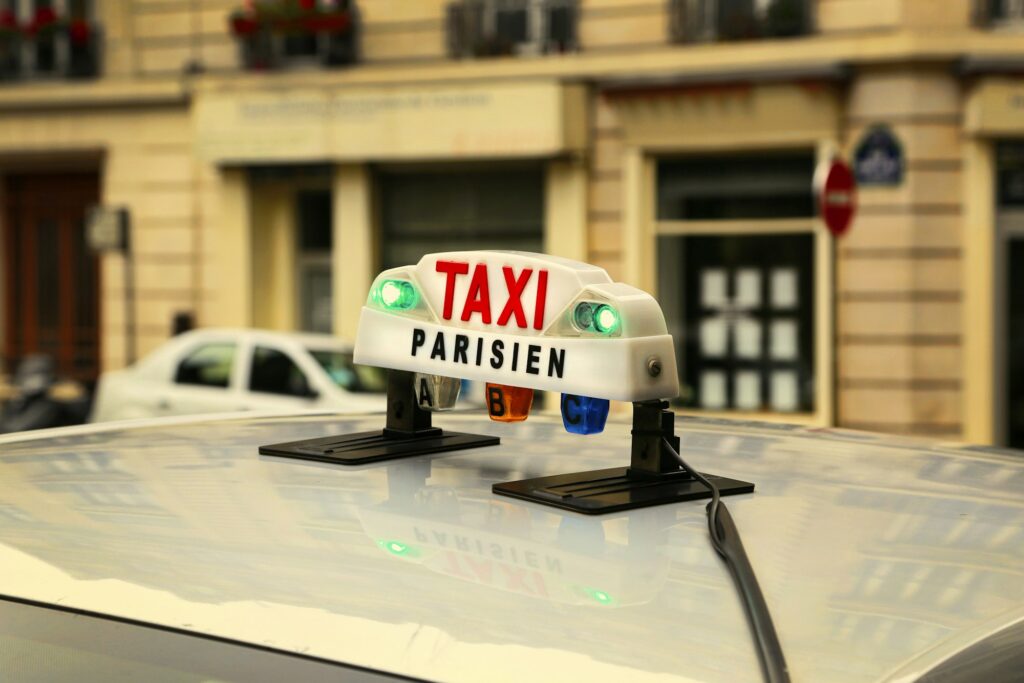
Transportation and Navigation
Exploring Paris with Ease: Mastering the city’s transportation is a key aspect of “visiting Paris for the first time.” From the Charles de Gaulle Airport to the historic heart of the city, we’ve got you covered with tips on using the Metro, buses, and more, ensuring every journey is as smooth as your morning café crème.
What’s the best way to get from Charles de Gaulle Airport to central Paris?
The best way to get from Charles de Gaulle Airport to central Paris depends on your budget, time, and comfort preference. The RER B train offers a direct and economical route to the city center, with stations like Gare du Nord, Châtelet–Les Halles, and Saint-Michel Notre-Dame. Taxis and ride-sharing services provide door-to-door convenience, with a flat rate for taxis to the right bank of €50 and to the left bank €55. The Roissybus also offers a direct connection to Opéra Garnier in the city center. Consider your arrival time and luggage when choosing the best option for you.
How do I use public transport in Paris?
Paris boasts an extensive public transportation system, including the Metro, buses, trams, and RER trains. Purchase a t+ ticket or a travel pass like the Navigo Découverte for unlimited rides within selected zones. Validate your ticket or pass every time you board a bus or tram and as you enter the metro and RER stations. The RATP app and website are invaluable resources for planning routes and checking schedules. Remember, public transportation is a great way to explore the city like a local, but keep an eye on your belongings to avoid pickpockets.
What’s the etiquette for using the Paris Metro?
When using the Paris Metro, observe a few key etiquettes for a smooth experience:
- Let passengers off the train before boarding.
- Keep to the right on escalators, leaving the left side free for those who wish to walk.
- Be mindful of noise levels, especially during phone calls.
- Eating is frowned upon on the Metro.
- Offer your seat to elderly, pregnant, or disabled passengers.
- Always have your ticket or pass handy, as fare inspections are common.
Read more about taxi apps in Europe
Safety and Security
Are there any cultural norms I should be aware of to avoid offending locals?
Understanding and respecting local cultural norms can greatly enhance your experience in Paris. Here are some key points to keep in mind:
- Greet shopkeepers and service providers with a polite “Bonjour” upon entering and “Au revoir” when leaving. This simple act of courtesy is highly appreciated.
- Dress modestly and neatly, especially when visiting religious sites. Parisians are known for their fashion sense, and while there’s no need to dress up everywhere, avoiding overly casual attire in upscale restaurants and certain public places is advised.
- Be discreet with your volume in public spaces. Loud conversations, especially on public transportation, can be frowned upon.
What are the safest districts for solo female travelers to stay in?
Paris is generally safe for solo female travelers, especially in central districts with good connectivity and plenty of amenities. Some of the recommended areas include:
- Le Marais (3rd and 4th arrondissements): Known for its vibrant atmosphere, historic architecture, and LGBTQ+-friendly vibe.
- Saint-Germain-des-Prés (6th): Offers a mix of cultural sites, cafes, and boutiques.
- The Latin Quarter (5th): A student area with lively streets, plenty of bookshops, and cafes.
- Montmartre (18th): Offers a more bohemian atmosphere with stunning views of the city.
Always practice general safety measures like being aware of your surroundings, not sharing personal information with strangers, and keeping valuables secure and out of sight.
The Greater Paris Metropolitan area, also known as the Île-de-France region, is home to approximately 12 million residents, making it one of the most populous urban areas in the European Union.
Are there any specific scams targeting tourists that I should be aware of? Yes, like any popular tourist destination, Paris has its share of scams. Be cautious of:
- The petition scam: Individuals asking you to sign a petition and then demanding money.
- The gold ring scam: Someone “finding” a gold ring and offering it to you, then asking for money.
- Friendship bracelets: Individuals tying a bracelet around your wrist and then demanding payment.
- Pickpockets, especially in crowded areas like tourist attractions and public transport.
Staying alert and politely declining any unsolicited offers can help avoid these common scams.
More Safety tips linked to Paris

Food and Dining
Savoring Parisian Flavors: Your first visit to Paris wouldn’t be complete without indulging in its world-renowned culinary scene. From cozy cafés to Michelin-starred restaurants, we guide first-time visitors through the best dining experiences Paris has to offer, ensuring every meal is a memorable part of your journey.
How do I navigate health and dietary restrictions when dining in Paris?
Parisian restaurants are increasingly accommodating dietary restrictions and preferences. Here are some tips:
- Learn key French phrases to communicate your dietary needs, such as “Je suis végétarien(ne)” (I am vegetarian) or “Je suis allergique à…” (I am allergic to…).
- Use apps and websites like HappyCow to find vegan, vegetarian, and allergy-friendly dining options.
- Most restaurants display their menus outside, allowing you to check for suitable options before entering.
Gastronomie
French gastronomy refers to the rich culinary traditions and practices from France, renowned worldwide for their quality, diversity, and sophistication. It embodies the art of selecting, preparing, and serving food, combining flavors and ingredients to create dishes that are as pleasing to the eye as they are to the palate. French cuisine is characterized by its emphasis on fresh, high-quality ingredients, regional specialties, and a balance of tastes and textures. It ranges from simple, rustic dishes to elaborate, multi-course meals, often accompanied by French wines and cheeses. Recognized by UNESCO as a “world intangible heritage,” French gastronomy is not just about food; it’s a celebration of culture, tradition, and the joy of sharing meals.
What are the best solo dining options in Paris?
Paris offers many comfortable and welcoming options for solo diners, including:
- Café counters, where you can enjoy a coffee or meal while people-watching.
- Small bistros and brasseries, offering a cozy atmosphere.
- Food markets and halls, like Marché des Enfants Rouges, where you can enjoy a variety of foods in a casual setting.
Are there any female-friendly cafes or bars you’d recommend?
Yes, Paris is full of charming cafes and bars that are welcoming to female travelers. Look for places with good reviews from solo female patrons, such as:
- Café de Flore and Les Deux Magots in Saint-Germain-des-Prés, both known for their literary history and friendly atmosphere.
- Le Marais district has many cafes and bars that are popular with a diverse and inclusive crowd.
- Bar à Vins Nicolas, with several locations, offers a relaxed setting for wine tasting.

Cultural Insights and Etiquette
Embracing Parisian Culture: Immersing yourself in the local culture is a cornerstone of “visiting Paris for the first time.” From learning basic French phrases to understanding the nuances of Parisian etiquette, this part of the guide enriches your journey, helping you connect more deeply with the people and traditions of Paris. It’s about making every interaction, whether it’s a friendly “Bonjour” or navigating dining customs, a meaningful part of your Parisian adventure.
What are some basic French phrases I should know?
Even a small effort to speak the local language can greatly enhance your connection with Parisians. Here are some essential phrases:
- Bonjour (Good day) and Bonsoir (Good evening) for greetings.
- Merci (Thank you) and S’il vous plaît (Please) for basic courtesy.
- Excusez-moi (Excuse me) for getting attention or apologizing.
- Parlez-vous anglais? (Do you speak English?) if you need to switch to English.
- L’addition, s’il vous plaît (The check, please) for dining out.
- Où est…? (Where is…?) followed by your destination.
What’s the tipping etiquette in Paris? Service charge is included in your bill in restaurants, cafes, and bars, so tipping is not obligatory. However, leaving a small extra (around 5-10%) for good service is appreciated but entirely at your discretion. For taxis, rounding up to the nearest euro or adding 5-10% is common.
How can I respect local traditions and etiquette while visiting religious sites? When visiting religious sites in Paris, such as Notre-Dame Cathedral or Sacré-Cœur, it’s important to:
- Dress modestly, covering shoulders and knees.
- Remain silent or speak softly to maintain the sanctity of the space.
- Follow any specific guidelines posted at the entrance, such as no photography signs.
Exploring Paris
Discovering Parisian Jewels: For those “visiting Paris for the first time,” we highlight not only the must-see landmarks but also the city’s hidden gems. Experience the magic of Paris beyond the guidebooks, and find yourself enchanted by the stories and secrets nestled in its streets.
What are the must-visit attractions in Paris?
Paris is filled with iconic landmarks and attractions. Must-visit sites include:
- The Eiffel Tower: Consider pre-booking tickets to avoid long lines.
- The Louvre Museum: Home to thousands of works of art, including the Mona Lisa.
- Notre-Dame Cathedral and Sacré-Cœur Basilica: Stunning examples of Gothic and Romanesque architecture.
- Montmartre: A historic district offering beautiful city views and the artists’ square, Place du Tertre.
- The Seine River: Take a scenic river cruise to see Paris from a unique perspective.
What are some hidden gems in Paris I shouldn’t miss? Explore beyond the well-trodden path to discover Paris’s hidden gems:
- Canal Saint-Martin: Perfect for a leisurely stroll or picnic.
- Musée de l’Orangerie: Home to Monet’s Water Lilies and less crowded than other museums.
- Parc des Buttes-Chaumont: A beautiful park with waterfalls, cliffs, and stunning views.
- Passage des Panoramas: One of the oldest covered arcades in Paris, filled with antique shops and quaint eateries.
Are there any areas in Paris I should avoid for safety reasons? Paris is generally safe, but like any major city, it has areas that are best avoided, especially at night. Exercise caution in less touristy parts of the outer arrondissements and around major transportation hubs late at night. Always stay aware of your surroundings and keep your belongings secure.
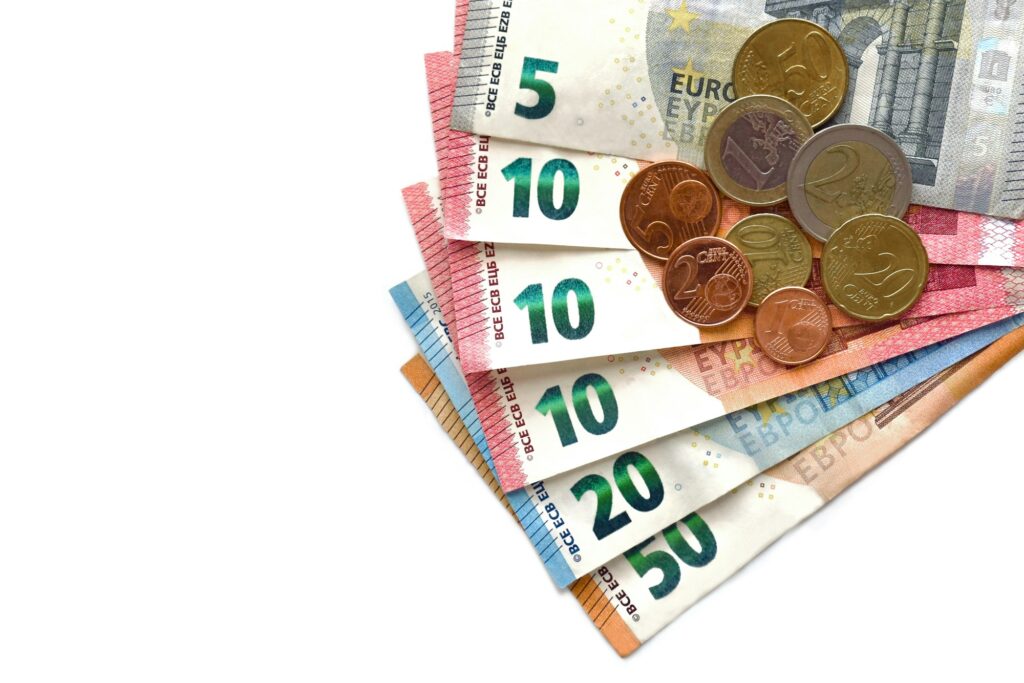
Financial Tips
Managing Your Finances Wisely: For travelers “visiting Paris for the first time,” understanding the best ways to manage money is essential. This section offers practical advice on using cash, cards, and tips for avoiding transaction fees. It’s your guide to navigating financial matters with ease, ensuring that your focus remains on the beauty and excitement of Paris rather than on monetary concerns.
What’s the best way to carry money? Should I use cash, cards, or a mix of both?
Using a mix of cash and cards is advisable. Credit and debit cards are widely accepted, but it’s good to have some cash for smaller shops or markets that don’t accept cards. Inform your bank of your travel plans to avoid any issues with your cards abroad.
What are the best practices for using credit cards and ATMs in Paris?
- Use ATMs at banks rather than standalone machines to reduce the risk of skimming.
- Be aware of your surroundings when using ATMs and shield your PIN.
- Check for any foreign transaction fees with your bank and consider using a card that doesn’t charge these fees.
Are there any specific health vaccinations I need before traveling to France?
No specific vaccinations are required for travelers from North America to France. However, it’s always wise to be up-to-date on routine vaccines. Check with your healthcare provider or a travel medicine clinic well in advance of your trip.
Technology and Connectivity
How do I connect to Wi-Fi in public areas?
Many public spaces in Paris, including parks, squares, and libraries, offer free Wi-Fi access. Look for the network named “Paris Wi-Fi” to connect. Cafes and restaurants also often provide Wi-Fi for customers, typically the password is given upon request.
Are there any Paris-specific apps I should download?
Absolutely! For a smoother experience, consider downloading:
- RATP: For navigating the public transportation system.
- TheFork: To discover and book restaurants.
- Paris Aéroport: For flight information and navigating Paris airports.
- Vélib’ Métropole: If you plan on using Paris’s bike-share program.
- Visit Paris by Metro: Offering advice on tourist attractions accessible by Metro.
How can I ensure I have a mobile internet connection while traveling around Paris? Consider purchasing a prepaid SIM card from local carriers like Orange, SFR, or Free Mobile for data usage. Alternatively, portable Wi-Fi hotspots are available for rent at the airport or online, providing internet access on the go.
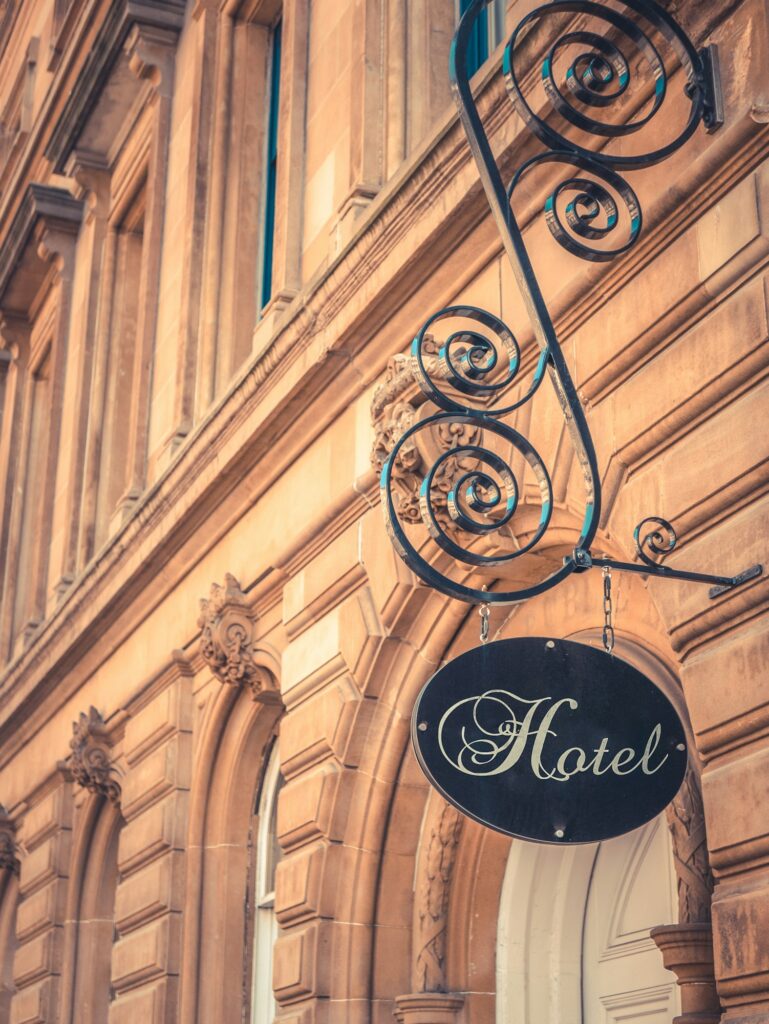
Accommodations and Recommendations
What are the best neighborhoods for shopping?
- Le Marais: Offers a mix of trendy boutiques, vintage shops, and designer stores.
- Saint-Germain-des-Prés: Known for its luxury boutiques and art galleries.
- Champs-Elysées: Home to flagship stores of global brands.
Can you recommend any spa and wellness centers in Paris?
- Les Bains du Marais: A luxurious spa offering traditional Moroccan hammam experiences.
- Spa de la Reine: Located in the Marais, known for its soothing treatments and serene ambiance.
- Dior Institut au Plaza Athénée: For those looking to splurge on a high-end spa experience with Dior beauty treatments.
How do I find a reputable and safe accommodation option?
Platforms like Airbnb, Booking.com, and the official Paris tourist website offer a range of vetted accommodations. Reading recent reviews and checking locations on maps for proximity to metro stations and attractions can help ensure a pleasant stay.
Miscellaneous
Can I drink the tap water in Paris?
Yes, tap water in Paris is safe to drink. Restaurants will often serve a carafe of tap water for free upon request.
What kind of weather can I expect during [insert month/season]?
- Spring (March-May): Mild temperatures and occasional showers.
- Summer (June-August): Warm to hot, great for picnics and outdoor events.
- Fall (September-November): Cool, with beautiful autumn foliage.
- Winter (December-February): Cold, with occasional rain or snow.
What kind of electrical adapter do I need for France? France uses Type E plugs with two round pins and a hole for the socket’s male earthing pin. Ensure your devices are compatible with 230V and 50Hz, or use a converter for those that aren’t.
Link to improve your experience of Visiting Paris for the first time
Here’s a curated list of useful links for tourists visiting Paris for the first time. These resources offer a wide range of information covering transportation, attractions, dining, and essential tips to help you navigate and enjoy the city to its fullest.
- Official Website of the Paris Tourist Office – parisinfo.com
- Your go-to resource for all things Paris, including attractions, events, and practical information.
- RATP: Public Transportation in Paris – ratp.fr
- Essential for navigating the Metro, buses, and trams around Paris.
- The Louvre Museum Official Website – louvre.fr
- Plan your visit to the world’s largest art museum and a historic monument in Paris.
- Versailles Palace Official Site – chateauversailles.fr
- Information on visiting the magnificent Palace of Versailles, located just outside Paris.
- Paris Pass – parispass.com
- Offers bundled access to various attractions and public transportation.
- La Fourchette – thefork.com
- Discover and book the best restaurants in Paris with discounts.
- Doctolib – doctolib.fr
- Find and book appointments with healthcare professionals in Paris, useful for non-emergency medical needs.
- Paris by Train – parisbytrain.com
- A guide to using Paris’s train systems, including RER and Metro, for getting in and around Paris.
- Paris Museum Pass – parismuseumpass.com
- Get access to over 50 museums and monuments in and around Paris with a single pass.
- My Little Paris – mylittleparis.com
- Insider tips on Parisian lifestyle, hidden spots, and unique things to do.
- Time Out Paris – timeout.com/paris
- Find out what’s happening in Paris, including events, restaurants, and nightlife.
- Paris Metro Map – ratp.fr/plans-lignes
- A detailed map of the Paris Metro system to help you navigate the city.
- CDG Airport Official Site – parisaeroport.fr
- Information on Charles de Gaulle Airport, including terminals, transportation, and services.
- Sainte-Chapelle – sainte-chapelle.fr
- Official site for visiting the iconic Sainte-Chapelle, known for its stunning stained glass.
- Paris Bike Share – Vélib’ – velib-metropole.fr
- Information on using Paris’s bike-sharing system to explore the city.
- HappyCow Paris – happycow.net
- A guide to vegetarian and vegan restaurants in Paris.
- Cité des Sciences et de l’Industrie – cite-sciences.fr
- France’s largest science museum, great for families and curious minds.
- Seine River Cruises – vedettesdupontneuf.com
- Experience Paris from the water with a scenic cruise on the Seine River.
- Le Marais Guide – lemaraisguide.com
- Discover the historic and vibrant district of Le Marais, a must-visit area in Paris.
- Official Disneyland Paris Website – disneylandparis.com
- For those extending their Paris visit with a trip to Disneyland, find all the necessary planning information here.
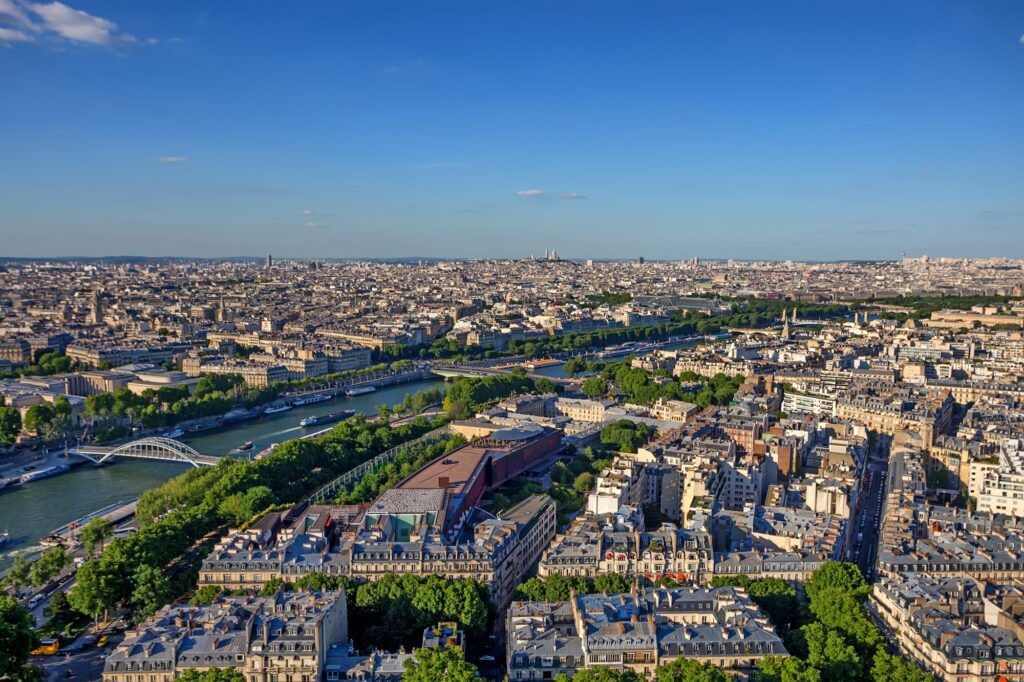
Au revoir (See you )
As your first visit to Paris draws to a close, the memories and experiences you’ve gathered will surely beckon you back to this mesmerizing city. “Visiting Paris for the first time” is just the beginning of a lifelong love affair with a city that never ceases to amaze. From its majestic landmarks and serene gardens to the simple joys of savoring a coffee at a sidewalk café, Paris has woven its way into your heart. With every step and every discovery, you’ve become part of the city’s endless story. As you bid “au revoir” to Paris, remember, the City of Light is not merely a destination but a journey filled with endless exploration and wonder. “Visiting Paris for the first time” may have been your introduction, but the city awaits your return, ready to reveal even more of its secrets and splendors. Until we meet again, let the magic of Paris linger in your heart and dreams.
